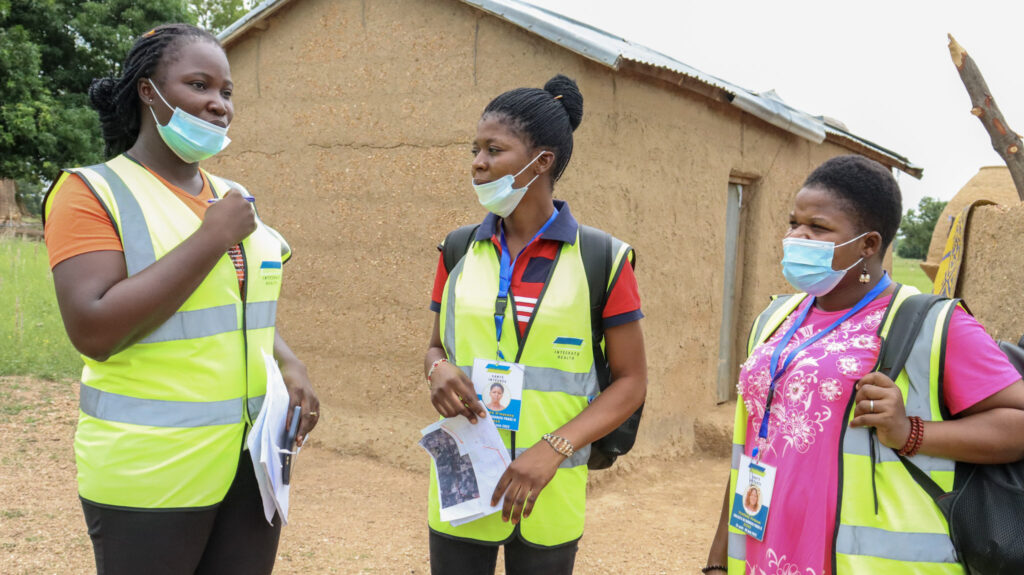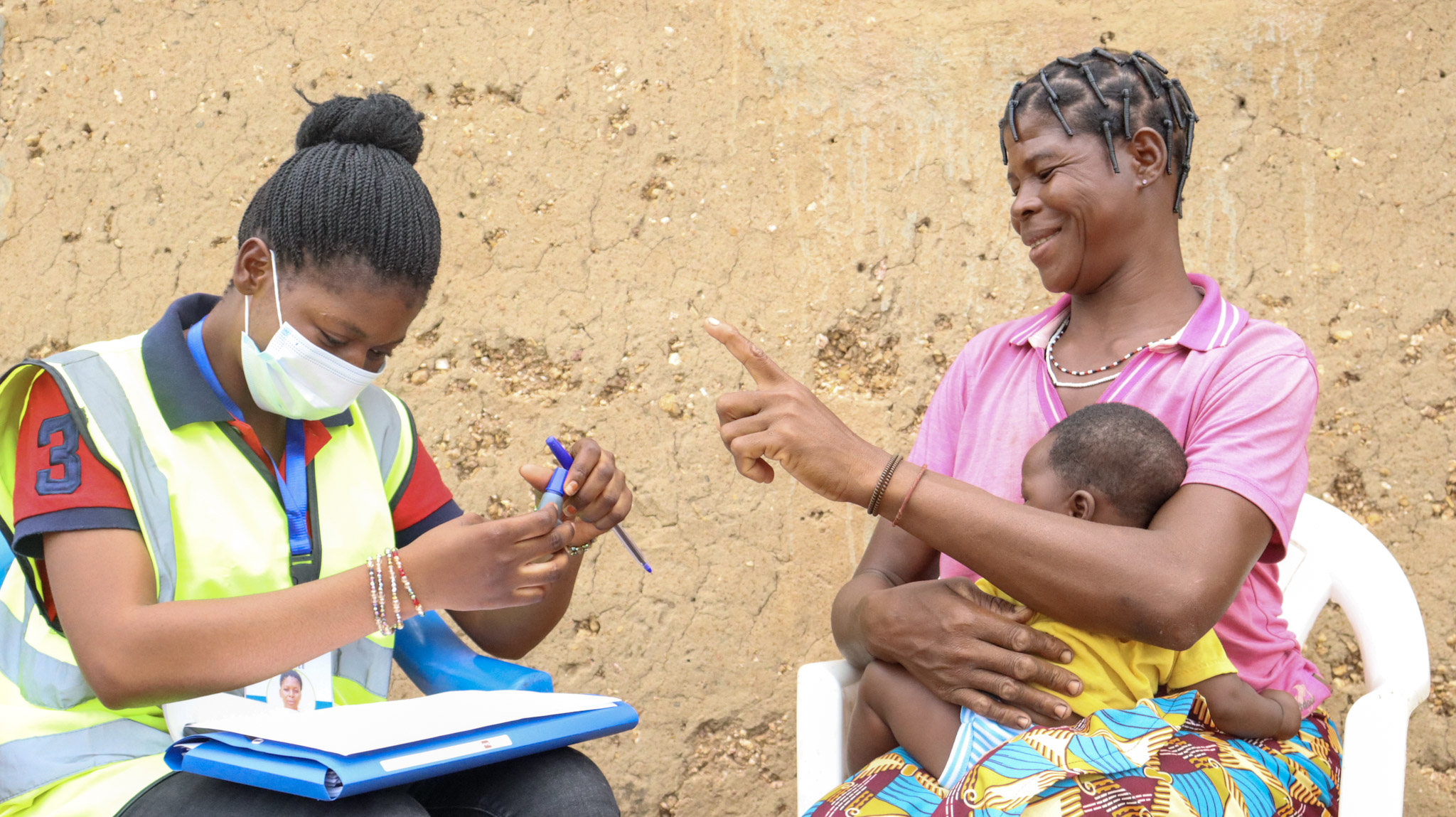Since 2015, Integrate Health’s research team has been conducting household surveys to understand the impact of the Integrated Primary Care Program (IPCP). To this end, data collectors are hired and trained to collect survey data, which is then analyzed by the research team. Based on quantitative and qualitative data, Integrate Health measures the effectiveness of the IPCP in expanding health coverage, improving care quality, and reducing child mortality. Last year, a study was published in Pediatrics using this data. The study found that the program contributed to a 30% decline in under-five mortality over a five-year period in the Kozah district. With Phase I completed, Integrate Health is now moving into collecting data for a Phase II study, which will evaluate the effectiveness of the program in the remaining four districts of implementation (Bassar, Dankpen, Binah and Kéran).
Collecting data for our next effectiveness evaluation
Within the framework of the Phase II research study, the collectors asked a set of 65 questions related to demographics, access to healthcare, and decision-making within households.
To evaluate the IPCP in all four districts, 42 collectors were recruited and trained together with four supervisors and four coordinators. Following their training, they were dispatched across the districts to conduct a minimum of 7,600 household surveys between April 25th and June 30th. In total, 15,226 surveys were initiated, of which 14,073 were completed, amounting to a 92% completion rate. Looking at women aged between 15 to 49 years, data collectors collect patients’ answers on their phones using the Kobo Toolbox to avoid paperwork and potential data loss.
To ensure effective collaboration with the government with regards to research and data collection, Integrate Health signed a memorandum of understanding with the National Institute of Demographic Studies and Surveys as well as with the Regional Direction of Health. This marks the start of a close collaboration on a number of key elements related to the IPCP, including data reliability in household surveys.
The role of Community Survey Coordinator
As a Community Survey Coordinator with Integrate Health, Agnès Miziou travels across all districts of the Kara region to visit areas where household surveys are conducted. She is responsible for following data collectors as they carry out interviews. She makes sure that they follow protocols when asking questions.

Data collectors must always explain to patients that their participation does not affect their access to the program or the health services they benefit from. Such clarifications are crucial to maintaining a high participation rate, and Agnès needs to make sure of that. Following interviews, Agnès provides feedback to the collectors to reinforce compliance with the study protocol and enable the agents to improve their interview techniques. Supervisors like Agnès help Integrate Health ensure that data collected is high-quality and reliable.
Thanks to household survey data, Integrate Health is better able to understand the strengths and gaps along the care continuum and to better serve our patients. This study is also part of our efforts to build a learning organization. High-quality care requires high-quality data looking not only at how much care was delivered but also whether it was well delivered.

